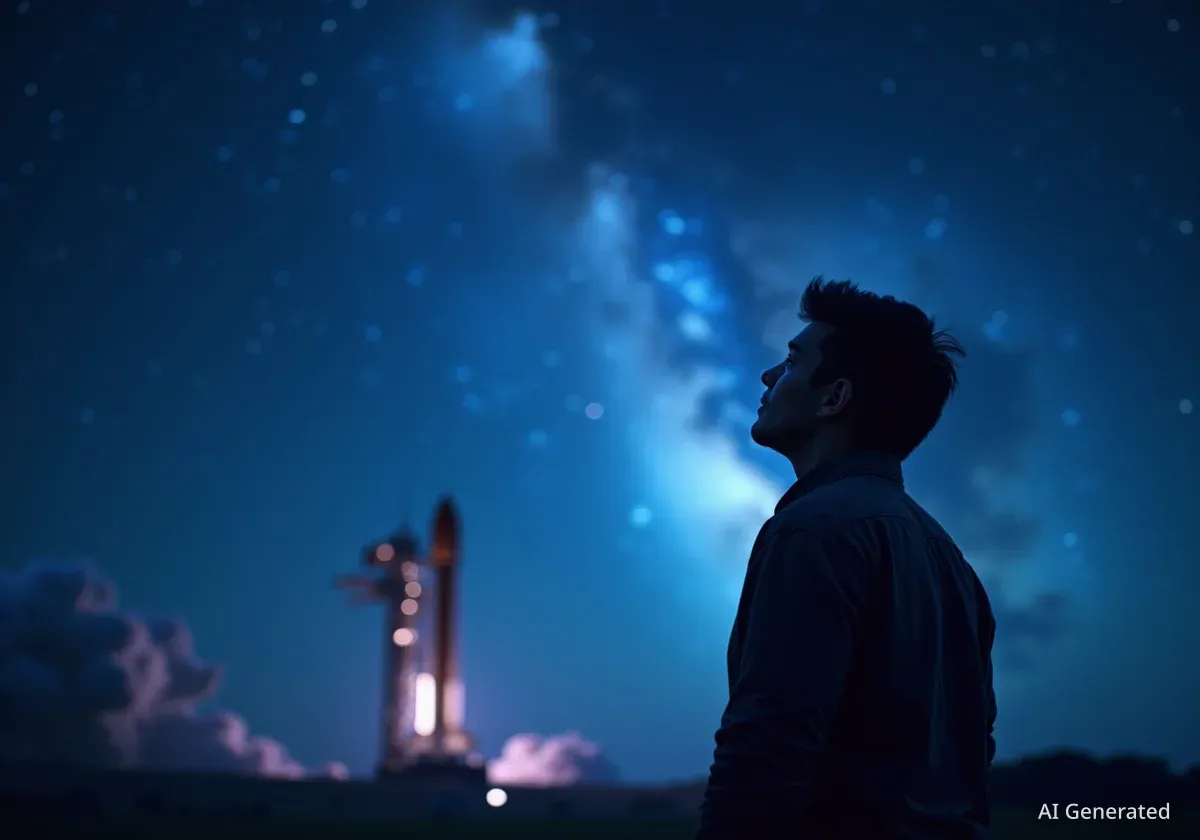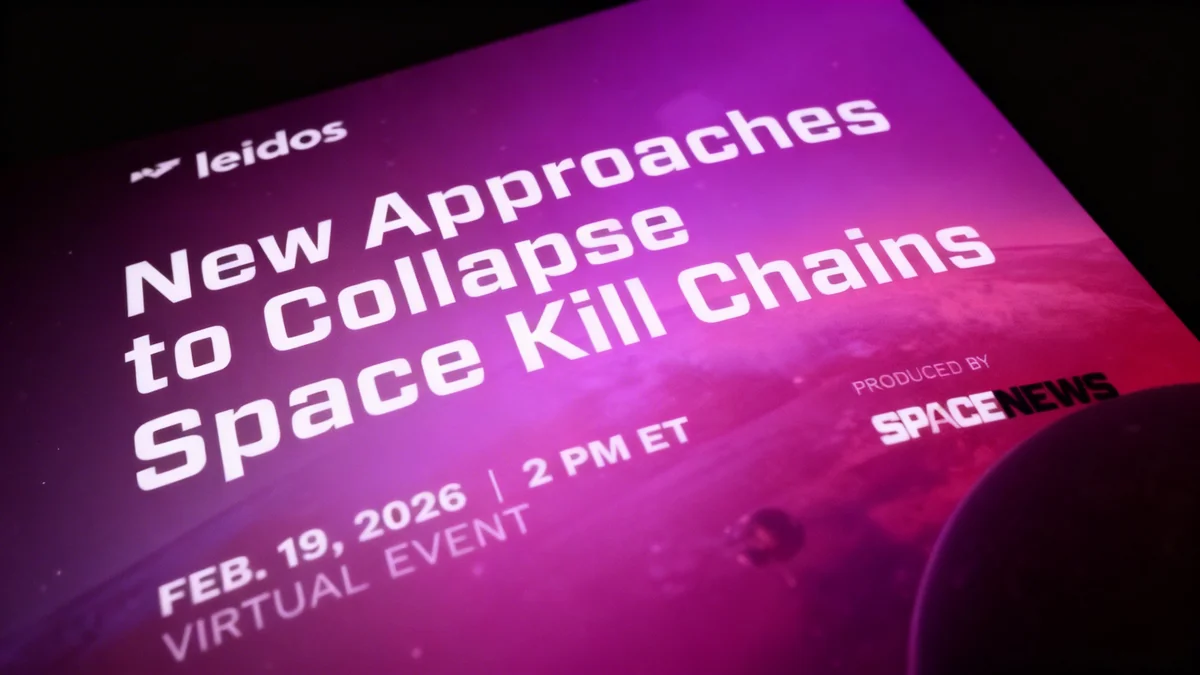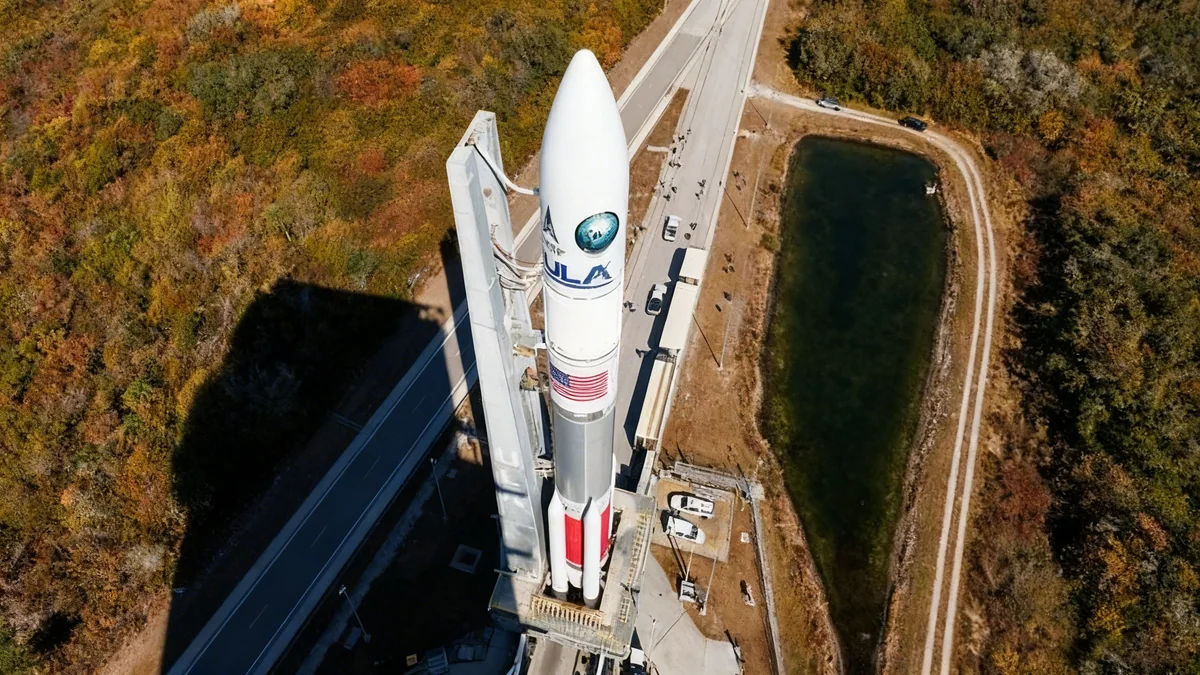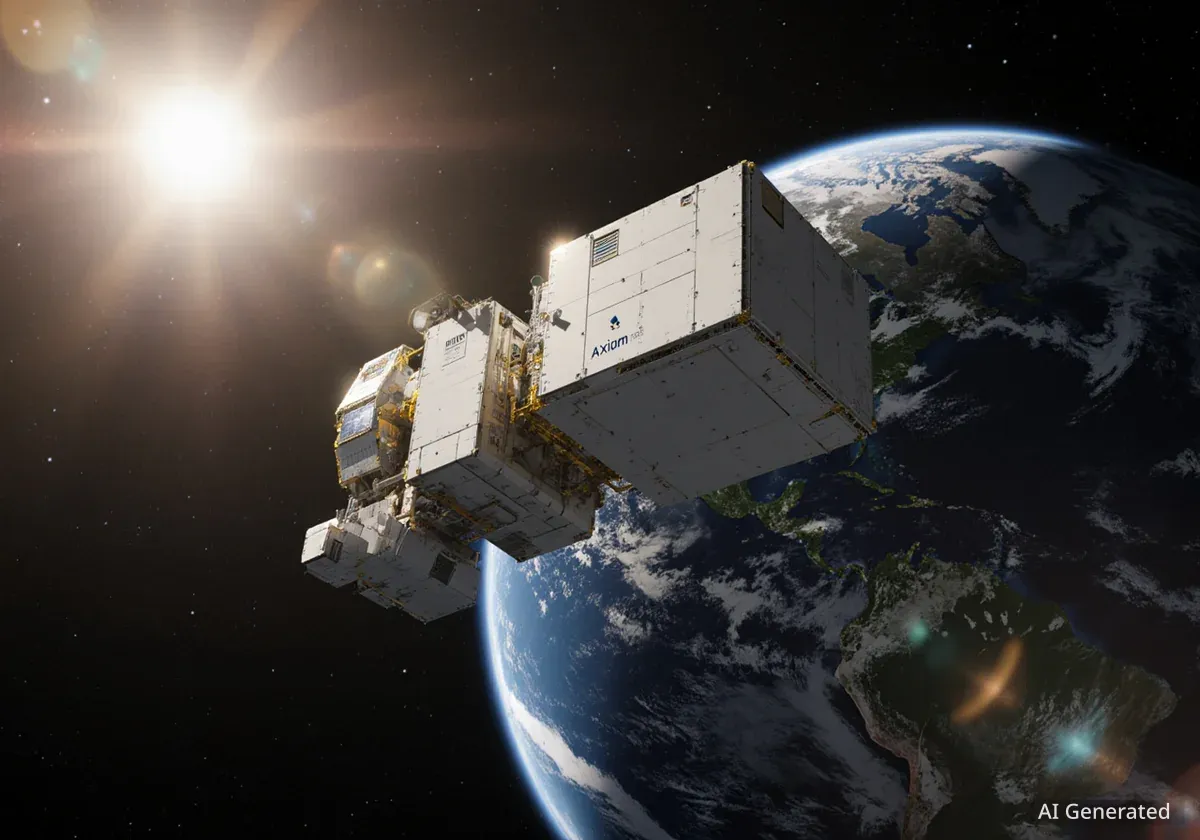BETHLEHEM, Pa. – Entrepreneur and astronaut Jared Isaacman described space exploration as “the greatest adventure in human history” during a recent appearance at Lehigh University. Addressing a packed hall, the commander of the historic Inspiration4 mission shared his vision for a future where humanity expands its reach beyond Earth, driven by a new, competitive space economy.
Isaacman, who also founded the payment processing giant Shift4, spoke on October 14th as the inaugural guest for the university's Future Makers Speaker Series. He discussed his personal journey from a high school dropout to a space mission commander, emphasizing the need for both private innovation and a continued sense of human curiosity to unlock the next frontier.
Key Takeaways
- Jared Isaacman believes it is humanity's destiny to explore space, calling it the most significant undertaking in our history.
- He advocates for a robust "space economy" driven by private companies to lower costs and accelerate innovation, arguing that taxpayer funds alone are insufficient.
- Isaacman highlighted the growing competition in the launch market, with companies like SpaceX, Blue Origin, and Rocket Lab pushing the industry forward.
- During his missions, he has helped raise over $250 million for St. Jude Children's Research Hospital, underscoring a personal philosophy of giving back.
From Childhood Dream to Orbit
For Isaacman, the ambition to travel to space began in kindergarten. He told the audience that this early fascination fueled his path into aviation and business. “The whole reason I became a pilot was because I thought it was a lot more realistic,” he explained, recounting his journey.
That journey was unconventional. Isaacman left school at 16 to build what would become Shift4, a major payment processing company based in the Lehigh Valley. He later earned a degree from Embry-Riddle Aeronautical University, but he credited a significant amount of his success to fortunate circumstances. “The ball definitely bounced my way many times in life,” he admitted.
This awareness of his unique position has instilled a deep sense of responsibility. Isaacman has used his spaceflights, including the all-civilian Inspiration4 mission and the upcoming Polaris Dawn mission, as platforms for major philanthropic efforts.
Philanthropy in Orbit
Through his space missions, Jared Isaacman has spearheaded fundraising campaigns that have generated over $250 million for St. Jude Children's Research Hospital, which treats childhood cancer and other life-threatening diseases.
“Two philosophies I have are: one, I don’t think you fulfill your purpose in life if you don’t maximize the opportunities you’re lucky enough to receive,” Isaacman stated. “Two, you have an obligation, to the extent you can, to make the world a better place than you found it.”
The New Era of Space Exploration
The conversation, moderated by Lehigh Provost Nathan Urban, explored the current state of the aerospace industry. Isaacman described this period as the “healthiest time we’ve ever had in the space program,” pointing to a surge in competition among launch providers.
He listed several key players driving this new era, including United Launch Alliance (a Boeing and Lockheed Martin joint venture), Jeff Bezos's Blue Origin, Rocket Lab, and Elon Musk's SpaceX, which he noted “is launching every few days.”
“The more competition we have, the more it will drive innovation and bring down costs.”
This competitive landscape, according to Isaacman, is essential for progress. He argued that NASA should focus its resources on ambitious goals that are currently beyond the reach of private enterprise, pushing the boundaries of deep-space exploration while the commercial sector builds the infrastructure for more routine access to orbit.
Building a True Space Economy
A central theme of Isaacman's talk was the necessity of a self-sustaining “space economy.” He stressed that relying solely on government funding is not a viable path to achieving humanity’s grandest space ambitions, such as becoming a multiplanetary species.
How Close is Space?
Provost Nathan Urban noted that the Kármán line, the internationally recognized boundary of space, is just 62 miles (100 kilometers) above Earth. For perspective, that is a shorter distance than the drive from Bethlehem, Pennsylvania, to New York City.
“We won’t reach our space dreams on taxpayer dollars,” Isaacman asserted. “There has to be a space economy.”
He envisions a future where commercial activities in orbit—from satellite deployment and data collection to tourism and manufacturing—create a vibrant market. This economic engine would, in turn, fund the research and development needed to explore further into our solar system. “Once we have a space economy, it will crack the code on how to explore further,” he said, adding that this is the key to making space accessible for “the many,” not just “the select few.”
Insights for the Next Generation
Before his public talk, Isaacman held a private session with Lehigh students, joined by former NASA astronaut and Lehigh professor Terry Hart. They discussed the rigors of astronaut training, risk management, and the role of emerging technologies like artificial intelligence.
Isaacman explained that both private and government training programs rely heavily on simulators to prepare for any contingency. “Something always goes wrong,” he said, “so it’s important to build high confidence and realize most situations are non-emergencies.”
When asked about the application of AI, Isaacman confirmed its growing importance. He noted that constellations of satellites are gathering vast amounts of data, and AI is critical to processing that information effectively. “The relevancy in space is huge,” he said. “There are constellations of satellites gathering data, and no way to apply that data before new data comes in without support from AI.”
His final message to students was one of passion and dedication. He encouraged them to find a field that genuinely excites them and strive to excel in it.
“Take it in a direction you’re generally excited about,” Isaacman advised. “If you do that, you have a real chance of becoming the best at what you’re doing, and that’s going to create even more opportunities for you.”





